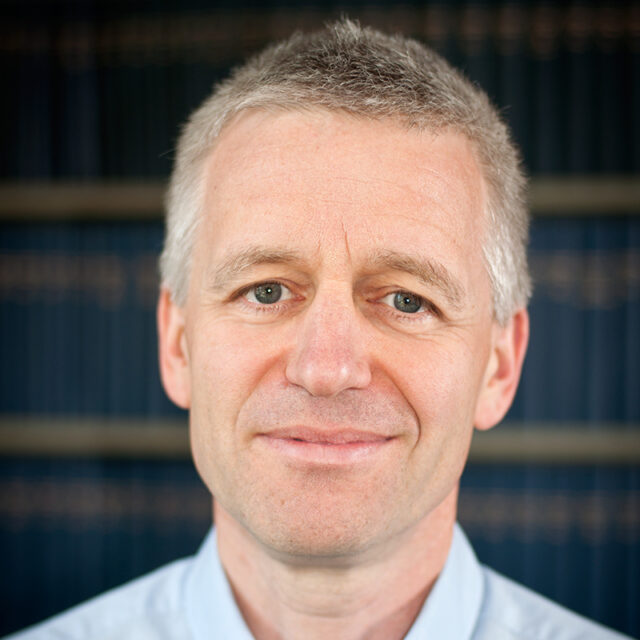In November 2022, Professor Kai Johnsson, Director of the Department of Chemical Biology at the Max Planck Institute (MPI) for Medical Research, and Professor at the Institute of Chemical Sciences and Engineering of the École Polytechnique Fédérale de Lausanne (EPFL), will give a talk about “Fluorescent and Bioluminescent Probes for Imaging and Diagnostics” at the International Symposium on Chemical Biology. During this hybrid event, happening in Geneva and virtually, he will present insights on how a combination of protein engineering and synthetic chemistry can be exploited to generate fluorescent and bioluminescent probes for live-cell imaging.
 Considered as one of the most creative and innovative experts in the field of chemical biology, Kai Johnsson’s current research interests focus on the development and application of chemical approaches to visualize and manipulate biochemical activities in living cells. His past achievements include the development of several new protein-labeling techniques (SNAP-tag and CLIP-tag) for bioimaging, all of which have proven to be commercially successful and have become indispensable for biomedical imaging worldwide.
Considered as one of the most creative and innovative experts in the field of chemical biology, Kai Johnsson’s current research interests focus on the development and application of chemical approaches to visualize and manipulate biochemical activities in living cells. His past achievements include the development of several new protein-labeling techniques (SNAP-tag and CLIP-tag) for bioimaging, all of which have proven to be commercially successful and have become indispensable for biomedical imaging worldwide.
Through targeted modification of proteins, the group of Kai Johnsson has also succeeded in creating new protein-based biosensors for use in diagnostics. He has also helped to elucidate the mechanisms of action of several drugs, and has been involved in the development of new drugs for chronic pain.
Kai Johnsson stimulated and supported start-ups based on knowledge and technology from his group. Some of these have grown to become full-fledge businesses like Covalys Biosciences, taken over by New England Biolabs, which commercializes SNAP and CLIP technologies or Spirochrome SA, a company co-founded by Kai Johnsson, which provides the scientific community with fluorescent probes for bioimaging.
“Kai was my co-director and, in a way, co-founder of the NCCR Chemical Biology. He is also a pioneer in chemical biology, inventing self-labeling protein technology and turn-on fluorescent probes for cell-labelling,” says Professor Howard Riezman, former Director of the NCCR Chemical Biology and member of the NCCR Steering Committee.
On his talk at the 2022 International Symposium on Chemical Biology, Professor Kai Johnsson will review his attempts to introduce new fluorescent dyes and sensor proteins that permit to visualize biochemical activities in living cells with high spatial and temporal resolution. He will also discuss how these sensors can be utilized for point-of-care drug monitoring.
EMBO Keynote speaker at the 2022 Symposium in Geneva
Kai Johnsson is Director at the Max Planck Institute for Medical Research, Department of Chemical Biology since 2017. He was appointed after being Full Professor at the Institute of Chemical Sciences and Engineering of EPFL and co-director of the NCCR Chemical Biology. Currently, he focuses on the development and application of chemical approaches to study and manipulate protein function. In the past, he introduced methods to specifically label proteins in living cells; among these the SNAP-tag and CLIP-tag have become popular tools in the chemical biology community.
Kai Johnsson obtained his PhD in Chemistry after his work with Steven Benner from the ETH Zürich in Switzerland (1992). He did a post-doc with Peter Schultz from UC Berkeley, (1993-1996). He joined the faculty of EPFL in 1999 and in 2017 became Director at the MPI for Medical Research. In 2002, Kai Johnsson published a book with Susanne Brakmann about Directed Molecular Evolution of Proteins: Or How to Improve Enzymes for Biocatalysis. He was Associate Editor of ACS Chemical Biology from 2005 to 2010 and since 2021 Executive Editor of the Journal of the American Chemical Society. He is member of the Editorial Advisory Board of Science and was member of the Research Council of the Swiss National Science Foundation from 2011-17. He received the Prix APLE for the invention of the year 2013 of EPFL, the Novartis Lectureship Award 2012/13, the Karl-Heinz Beckurts Prize 2016 and is elected member of EMBO.

Leave a comment
The editors reserve the right not to publish comments or to abridge them.